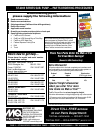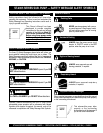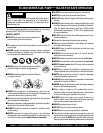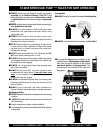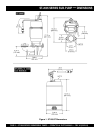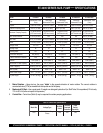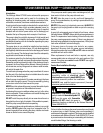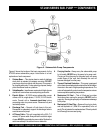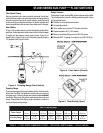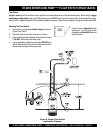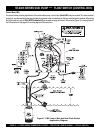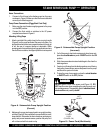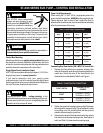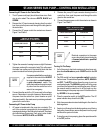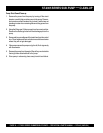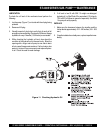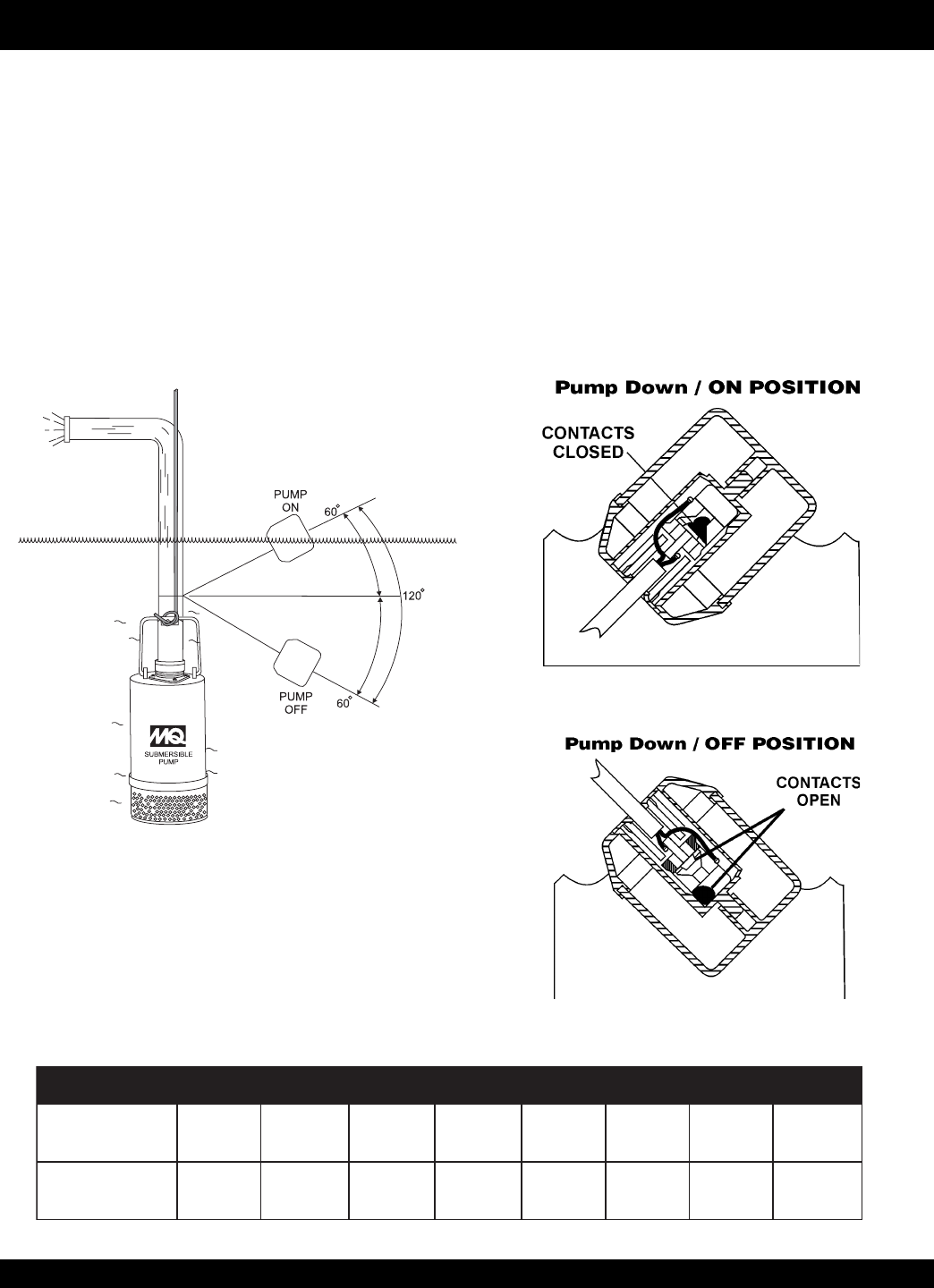
PAGE 12 — ST-2005 SERIES SUBMERSIBLE PUMPS — OPERATION & PARTS MANUAL — REV. #3 (09/21/04)
ST-2005 SERIES SUB. PUMP — FLOAT SWITCHES
Float Switch Theory
Mercury monitoring is a mercury-switch actuated, liquid level
control that has proven to be more economical and longer lasting
than other types of liquid-level control systems, easily replacing
and improving upon diaphram switches, air bubble systems and
electro-mechanical switches most often relied upon in the past.
How It Works
There is a tilt-sensitive mercury switch hermetically sealed within
each float. As the liquid level (water) rises or falls, the float changes
its angle until the mercury switch makes (close, Figure 4) or
breaks (open, Figure 5) the circuit. Maximum pumping range is
120 degrees. See Figure 3 below.
Figure 3. Pumping Range (Float Switch)
Figure 5. Float Switch (Open)
Figure 4. Float Switch (Closed)
Design Features
Constructed of rigid, durable ABS polymer ultrasonically welded.
The all-steel mercury switch is held by positioning pins. Interior
is filled with cell foam.
■
Suitable for most liquid environments.
■
Hermetically sealed.
■
Thick-walled non-corrosive PVC plastic enclosure.
■
Pressure tested to 60 ft. (18.2 meters).
■
Mercury switch reliability, proven to 500,000 cycles.
■
Standard SJO, 16-gauge, 2 conductor cord (20 ft./6.09 m).
Pumping Range
The pumping range of the pump is determined by the float switch
tether cord. Use Table 3 as guide line to determine your required
pumping range. Pumping ranges are based on
non-turbulent
conditions. Range may vary due to water temperature and cord
shape. Please note as the tether length increases, so does the
variance of the pumping range.
egnaRgnipmuP.3elbaT
htgneLrehteT
.ni2
.mc80.5
.ni4
.mc61.01
.ni6
.mc42.51
.ni8
.mc23.02
.ni01
.mc4.52
.ni21
.mc84.
03
.ni41
.mc65.53
.ni61
.mc46.04
egnaRgnipmuP
.ni6
.mc42.51
.ni01
.mc4.52
.ni41
.mc65.53
.ni81
.mc27.54
.ni22
.mc88.
55
.ni72
.mc85.86
.ni13
.mc47.87
.ni53
.mc9.88



